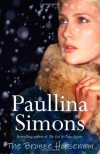Love: The Endless Pursuit of Normalcy

I read this book in 55 minutes. It was exactly what I needed in between reading the thick, action-packed and young adult geared Harry Potter series. It is, in a very brief summary, a book which asks deep questions about a topic which is at the centre of human experience.
I loved that this book is one of undeniable normalcy. The story here is far from farfetched. The characters are extremely familiar to the ordinary reader, and there is no real action or event which sets them apart from the experiences of love that the reader can probably see within themselves. At least I did. I think, what I'm trying to grasp at is that these two, nameless characters, were so relateable, and that's what really piqued my attention. It was because i could see myself in their struggles, and empathise with their feelings, however mundane or brief, that I really appreciated this book. It was simultaneously profound (with excellent writing), and utterly familiar.
The themes of infidelity, cohabitation, familial relations, attraction, desire, comfort, death, self-worth and understanding were laced throughout this novel in dribs and drabs. Due to its structure as a dictionary, they were thrown together in an almost haphazard fashion - some letters and themes being spent far longer on than others. But it really worked. It was visually appealing, and kept my attention. I didn't find the mash-up of ideas confusing. Similarly, I didn't find the prose beneath the word being defined predictable. The little asides which made up the definition were charming and, despite being relateable to my own experiences, very imaginative. It was as if the author was drawing on his own, personal experiences, because it felt very raw and real.
The definitions didn't shy away from the uncomfortable reality of love. For example, the theme of infidelity really hit home to me when reading the definition of fallible. It made so much sense to me that although being cheated on is ridiculously difficult to deal with, there is also that underlying sense of relief that you are in the right; that you don't have to be laden with guilt, because it wasn't your fault. I don't think I've ever heard anyone admit to that feeling, and yet, through my own experiences, I know it to be somewhat true.
I liked the use of the first person narrative. It drew me closer to the narrator and helped me sympathise with him, however, the namelessness of the characters simultaneously stopped me from getting too involved in the two distinct sides of the story. The namelessness left the reader able to be somewhat objective, whilst still feeling empathy for the narrator and his experiences. It drew you in, and yet somehow kept you that little bit aloof.
The intertwining of literature and love was fantastic. I loved that the narrator was very profoundly interested in the meaning and use of words. The way in which the words we use to speak of love or our loved ones can be construed in particular ways to mean completely different things. Or that the words we use to communicate can similarly lead to such ambiguities. The definition of yell was fantastic in this regard - displaying how an affinity for using strong, emotive language in an argument was just as capable of showing intense displeasure as the physical act of slamming a door.
The scene of breaking up (?) carries through several of the definitions, each adding onto the next. It is never fully resolved and encapsulates how this book doesn't serve to give the reader concrete answers to the outcome of the two lovers within this book. It doesn't give a concrete resolution to many of the problems faced here, and a lot is left to the readers imagination, and their understanding of the characters. I don't think this is necessarily a bad thing, however for a reader that loves to know everything about the characters, the lack of an ending somewhat grinded my gears. But I think its a matter of appreciation - I clearly lack the ability to appreciate what isn't obvious on the page sometimes, and I think that's probably a reflection on my character rather than the book itself.
Overall I thought this was a fantastic, short read. If you can stomach the structure, which isn't bad at all (and is actually quite interesting and different), then its worth getting stuck into. The characters are fantastic and the prose is so blunt, getting to the core of the human experience with love, and yet so profound, mostly through the use of incredible language and literary devices. I love David Levithan's writing style and will definitely be back for more.
 4
4








